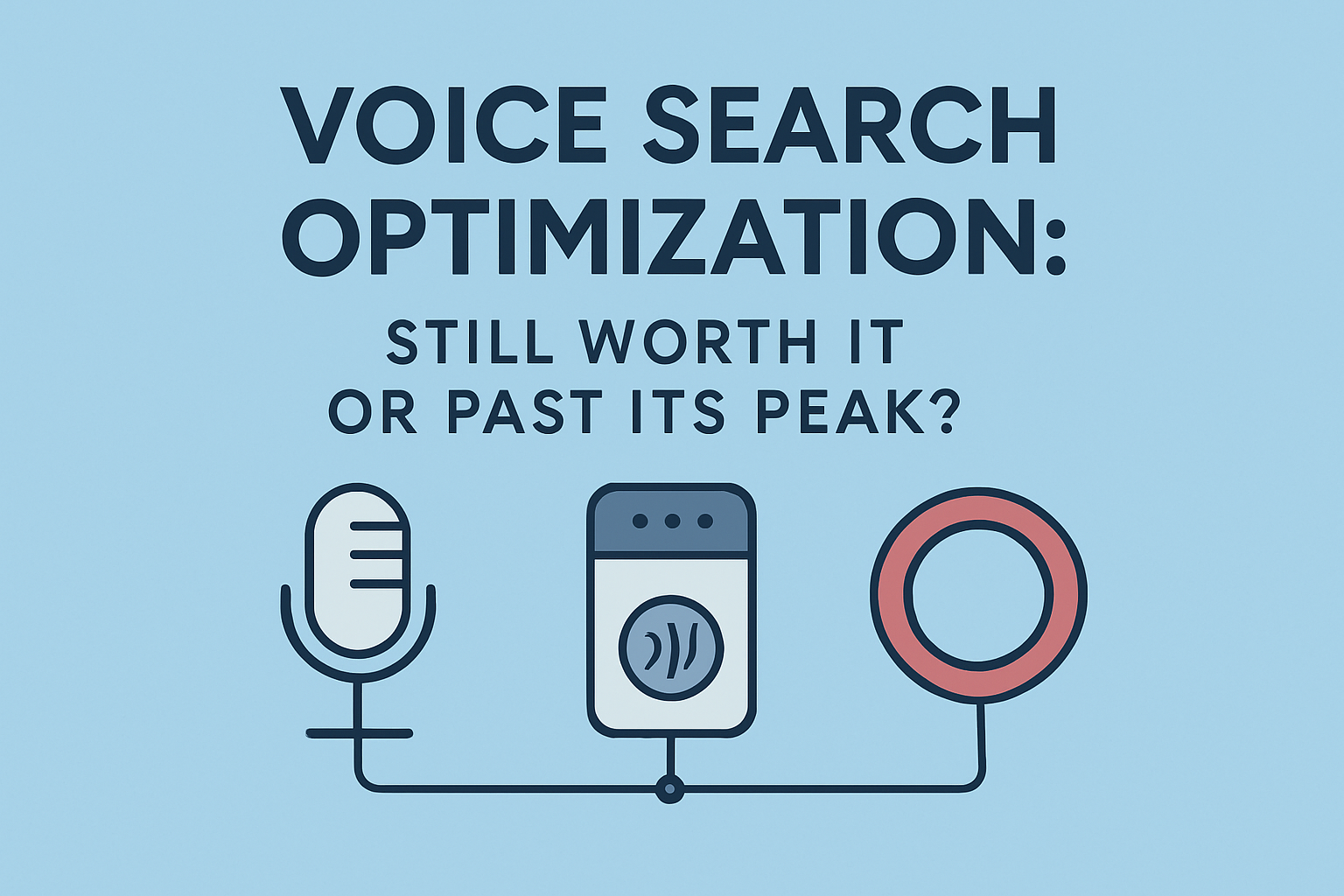With the dominant age of smart assistants like Siri, Alexa, and Google Assistant, voice search optimization once took center stage in digital marketing strategies. However, as SEO trends evolve rapidly, a common question arises: Is voice search optimization still worth it, or has it passed its peak?
In 2025, this debate carries significant weight for brands, agencies, and businesses investing in SEO optimization services. Let’s explore the current landscape of voice search, its impact on search engine performance, and whether it deserves your marketing attention.
The Rise and Plateau of Voice Search
Voice search began gaining popularity in the mid-2010s with the spread of smartphones and virtual assistants. Google’s 2018 reports revealed that over 27% of the global online population was already using voice search on mobile.
However, while initial adoption soared, recent data suggests the growth has plateaued. Instead of completely replacing traditional search methods, voice search has integrated into users’ multitasking habits—like setting reminders, asking for weather updates, or playing music. This limited utility raises doubts about its broader role in organic search strategies.
Is Voice Search Still Relevant for SEO in 2025?
Despite its slower-than-expected takeover, voice search isn’t obsolete. It’s just matured—and that means marketers need to optimize smarter. For businesses leveraging keyword research services, this means tailoring content for conversational queries and long-tail keywords.
Unlike typed searches, voice queries are more natural and question-based. Instead of “best pizza NYC,” users might say, “Where can I find the best pizza near me open now?” Adapting to this structure helps your content appear in featured snippets and position zero—a crucial win in voice-driven SERPs.
Technical SEO Still Matters in Voice Search
While voice queries sound conversational, the mechanics behind ranking for them remain deeply technical. A robust technical SEO audit is still essential.
To rank in voice results:
- Use schema markup for rich results
- Optimize page speed and mobile responsiveness
- Structure content with headers, bullet points, and concise answers
In this way, traditional SEO principles still support your chances of being selected as a voice result.
Where Voice Search Thrives: Local SEO
One of voice search’s biggest strongholds remains local SEO. Users often conduct voice searches for location-specific queries such as:
- “Best barbershop near me”
- “Gas station open right now.”
Content that includes localized keywords optimized Google Business Profiles, and positive reviews increases your visibility. This is especially important for service-based businesses working with a content marketing agency to rank for local terms.
Creating Content That Speaks Back
To win in voice search, your content must answer users’ questions directly and naturally.
Tips to Optimize for Voice Search:
- Include FAQ sections
- Use conversational language
- Answer questions clearly within the first few sentences
For example, a business offering email marketing campaigns might write: “Wondering how to boost open rates? Personalizing subject lines can increase your email open rates by 26%.”
The Connection Between Voice and Mobile
Voice search is most commonly used on mobile devices. Therefore, any voice search optimization is inherently tied to mobile SEO.
Ensure:
- Your site is mobile-friendly
- Load times are under 3 seconds
- Navigation is intuitive and tap-friendly
All of this falls under a broader mobile-first indexing approach, which also impacts traditional search.
Challenges Limiting Voice Search Dominance
Voice search hasn’t replaced text search because:
- Users still prefer typing for complex queries
- Public use of voice commands can feel awkward
- Accuracy in understanding accents/languages still needs improvement
As AI improves, these barriers may diminish, but for now, voice search is best viewed as supplementary.
Voice Search in Smart Devices and IoT
While mobile voice search growth has stalled, smart speakers and IoT devices continue to expand. Integrating voice optimization into content accessed via smart refrigerators, smart TVs, and wearables opens new frontiers.
If your brand creates multimedia content or IoT-compatible applications, voice search optimization becomes a competitive edge.
Does Voice Search Generate ROI?
For brands wondering whether investing in voice optimization yields results—the answer is nuanced.
If you’re already executing SEO optimization services, adapting for voice can amplify those efforts. But voice optimization alone won’t drive massive ROI unless:
- You operate in a highly localized industry
- Your audience is mobile-first
- Your niche includes a high demand for FAQs
Voice Search and the Future of Zero-Click Searches
Voice queries often generate zero-click results, where users get their answers without visiting a website. While this may reduce traffic, it can build brand authority if your site consistently ranks for featured snippets.
This also complements content marketing agency strategies focusing on brand positioning over pure traffic numbers.
Strategic Recommendations: Should You Still Optimize?
Yes, but with context.
Voice search is not the all-dominating trend it once seemed destined to be, but it’s far from dead. Smart integration into a broader SEO strategy ensures you don’t miss out on important micro-moments and mobile opportunities.
Conclusion
Voice search optimization in 2025 isn’t about chasing hype—it’s about strategically integrating it where it matters. For businesses investing in keyword research services, technical SEO audits, or collaborating with a content marketing agency, voice remains a valuable layer—not the entire strategy. When combined with fast-loading mobile pages, localized content, and clear question-based answers, voice optimization can enhance overall visibility.
Voice search hasn’t passed its peak—it has simply matured. The marketers who evolve with it will continue to benefit, even as user behavior diversifies.


